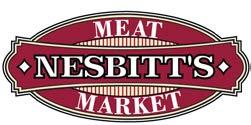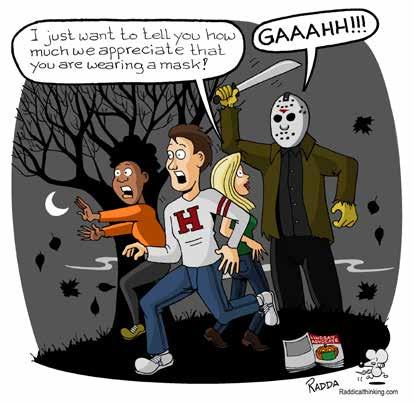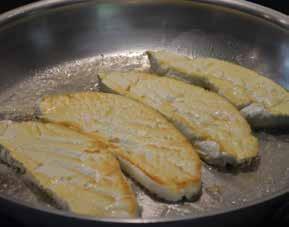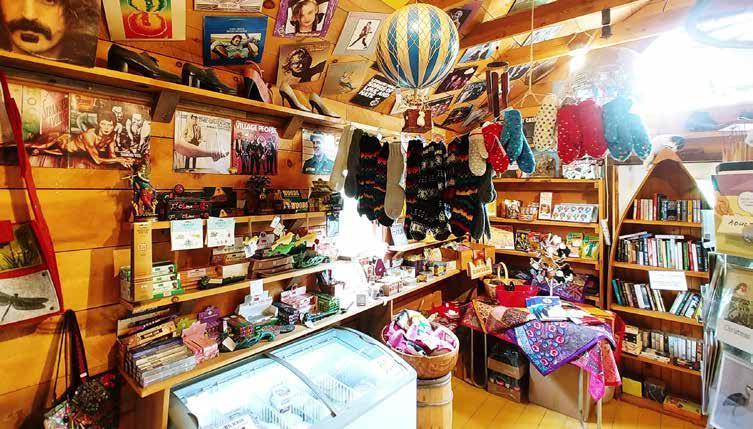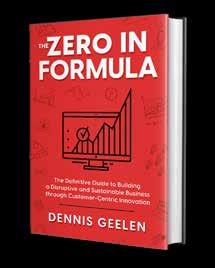
5 minute read
WILD IDEAS
}} A place for hunting in a more environmentally conscious world
MATTHEW ROBBINS
Advertisement
Photo: Matthew Robbins
Camouflage gear is not an unusual sight in Kawartha sonally rewarding, but environmentally conscientious. Lakes. Like many rural Ontario communities, hunting is For one thing, wild animals don’t represent an anthropart of our recreational history and has long kept retailers pogenic (human-made) source of greenhouse gas emisstocked with leaf-adorned bedspreads, decals and, yes, sions. Due especially to livestock, commercial agriculture even masks. is now one of the world’s leading contributors to human
But people don’t relate to hunting, or to hunters, made climate change. By consuming wild game, hunters like they once did. Despite hunters’ widespread prescan partially step outside of this system, effectively elimience in our community, a lot of folks are uncomfortable nating a portion of their personal carbon footprint (other or even downright angry that some among us would go than hunting-related transportation.) In contrast, plantout of our way to kill an animal. Hunters are increasingly based diets usually replace calories that would otherportrayed as behind the times, the strange and unfortuwise come from meat with a crop of some sort and, nate remnants of a less progressive era. So, it raises the while these generally have a much lower impact on question — does hunting still have a place in our society? the climate than livestock, they are still responsible for
As a lifelong hunter, I encounter this question from human-induced emissions. time to time, and part of my answer always seems to Hunting can also be an opportunity to live a less raise eyebrows. Hunting, I say, is a sustainable source of invasive and wasteful lifestyle. Marcie Goldenburg is a food. Hunting offers a unique opportunity to remove local high school teacher and recent graduate of the oneself from a corporate and notoriously problematic Ontario Hunter Education Programwhose interest in livestock system and enter into something not only perhunting developed 15 years ago.
“In my 30s I moved out of Toronto to the Kawarthas and really got more connected to the outdoors. That’s when I thought ‘yeah, I really should get into hunting.’” For Goldenburg, interest in hunting has always stemmed from a desire to be less dependent on systems that generate vast amounts of waste, landscape change and overuse of our natural resources.
“I don’t want to strip the planet of its resources for a throwaway lifestyle … I wanted an alternative meat source and at first it was to go to free-range farmers, but that was so expensive and hard for me to access that I thought hunting would be a better option, especially since it allows the trees and the land to remain in their natural state.”
Despite a very real legacy of resource abuse, hunting has come a long way in North America. By the 19th century, unregulated market hunting had completely altered our natural landscape, driving species like the American buffalo to extinction and bringing countless others to the brink. Out of necessity, hunters and conservationists developed the North American Model of Wildlife Conservation, a management framework which is now the foundation for all Canadian and U.S. fish and wildlife regulation. Thanks largely to this model, which has been imitated across the globe, 100 per cent of fishing and hunting revenue in Ontario goes into a special purposes account that can only be used for fish and wildlife management. In 2017, Ontario hunters and anglers contributed $71 million to this fund, accounting for two thirds of all provincial funding in fish and wildlife science, policy, enforcement, ecological rehabilitation and enhancement, licensing, and education. Hunters have also established some of North America’s largest non-profit conservation organizations, like Wildlife Habitat Canada, Ducks unlimited and the Rocky Mountain Elk Foundation. With the help of groups like these, hunters have been an integral part of bringing back many of the vary species they once extirpated.
The trouble is, there are fewer and fewer hunters. Even with the new wave of sustainability-minded recruits, most provinces (and states) have been experiencing a steady decline in hunter participation since the late 1980s.
Locally, there are few places more directly affected by this than Nesbitt’s Meat Market. Owner Adam Hayward says that, while many local hunters still
CONT’D ON PAGE 35
We see what others don’t.
Lightning-fast WordPress websites.
CAPTURING MOMENTS THAT Last Forever

Frost Quality Photos
Call for an estimate or availability 705-341-7444 www.frostphotos.ca

Launch and Grow the Business of Your Launch and Grow the Business of Your dreams dreams
D D E E C C
Branding Branding Design Design Websites Websites
Marketing Marketing READY TO TAKE THE NEXT STEP? READY TO TAKE THE NEXT STEP?
Schedule a free discovery call. Schedule a free discovery call. visit visit www.bartoncreative.co www.bartoncreative.co
WILD IDEAS
CONT’D FROM PAGE 33
bring their deer to his shop for butchering each November, it’s not the same as it once was.
“Overall, we have seen numbers decrease over several years, especially in the last five or six.”
While he points out that it’s difficult to pin down an exact reason for the change, it has wide-ranging impacts.
On top of its financial implications for the world of conservation, having fewer hunters around may be an ideological issue. Hunting gives people a sense of value and connection to the natural landscape, as well as to their food. In an increasingly urban world, these qualities could mean the difference between tackling the great environmental issues of our time and complacency. For me, hunters are the natural-born champions of issues like climate change, partly for the potential that their lifestyle holds as a solution. As someone who spends much of the year outside, I don’t just bear witness to the changes our world is undergoing, I’m defined by them.
It would be naive to suggest that everyone should adopt this lifestyle, out of a desire to be sustainable or otherwise. Clearly, despite the benefits of increased hunter
Mark Robbins, father of Matthew, salting a fresh deer hide for storage. Photo: Matthew Robbins.

recruitment, few resources on this earth could withstand humanity’s full attention. But the way forward, toward a greener future, is not likely to be created by one standalone solution that’s applicable to everyone. It can only be a blend of ideas and lifestyle changes — a melting pot of stewardship.
I believe hunting has a place in that world. At the very least, it has a place in our community.
Order your fresh turkey for Thanksgiving! All local. All Canadian. 705.324.7574 nesbittsmeatmarket.com

